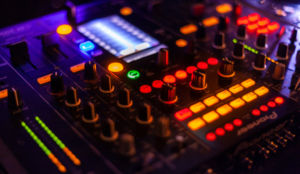In the events industry, technology has always played a key role, but never before has it so radically transformed the way we design, plan, and experience events. Augmented Reality (AR) and Artificial Intelligence (AI) are becoming two fundamental pillars of this evolution, redefining both audience experiences and organizational strategies. But how will these technologies shape the future of events? In this article, we’ll explore emerging trends and future predictions..
Augmented Reality: An Immersive Experience for the Audience
Augmented Reality (AR) allows digital elements to be overlaid onto the real world through devices such as smartphones, tablets, or AR headsets. In the context of events, this technology opens up unique opportunities to engage audiences:
-
Personalized experiences – Organizers can use AR to create tailored experiences. For example, at a trade show, visitors can explore virtual booths and interact with exclusive content via their mobile devices.
-
Hybrid and interactive events – Virtual events became increasingly popular during the pandemic, and AR can further enhance them. Remote participants can feel “present” thanks to realistic 3D reconstructions of venues and interactive networking opportunities.
-
Gamification – Incorporating AR into games and competitions boosts engagement. Think of interactive treasure hunts at conventions or live quizzes powered by AR visuals.
-
Music festivals and concerts – Some festivals already use AR to deliver digital animations that blend with live performances. These not only enrich the experience but also create unique, shareable content for social media.
Artificial Intelligence: Automation and Advanced Analytics
While AR enhances the audience experience, AI works behind the scenes. Artificial Intelligence can streamline event organization, improve attendee management, and provide valuable data for future optimization. Here are its main benefits:
-
Automated planning – AI can optimize logistics such as venue layouts or scheduling. Machine learning tools can analyze past event data to recommend better setups for upcoming ones.
-
Chatbots and virtual assistants – AI-powered chatbots are increasingly common at events. They answer FAQs, provide directions, or even guide users through virtual event platforms.
-
Real-time data analysis – During an event, AI can track audience behavior, preferences, and interactions, enabling organizers to adjust in real time and improve future events.
-
Simultaneous translation and inclusivity – AI systems can deliver real-time translations, making events accessible to global audiences. Voice recognition tools also allow for automatic captioning.
-
Personalized communication – Algorithms can customize messages for attendees, such as sending targeted emails or push notifications based on specific interests, increasing participation rates.
AR and AI Combined: A Winning Synergy
Individually, AR and AI are powerful tools—but their real potential lies in their combination. Together, they create groundbreaking possibilities:
-
Dynamic, interactive events – AI can analyze audience data in real time and adapt AR content accordingly. For example, exhibition visuals could change based on a visitor’s preferences.
-
Multisensory experiences – Combining AR and AI can generate environments that stimulate sight, sound, and even touch. These applications could be used in artistic performances, corporate events, or product launches.
-
Borderless events – With AR and AI, participants are no longer limited by physical distance. Events can be designed to work seamlessly both in-person and remotely, without compromising the experience.
The Challenges Ahead
Despite the advantages, implementing AR and AI in events comes with challenges: high costs, the need for staff training, and concerns about data privacy and security. These technologies require significant investments and specialized skills that may not always be accessible. Additionally, the use of AI in data collection raises ethical and legal questions around personal information protection.
Predictions for the Future of Events
Looking ahead, it’s clear that AR and AI will become increasingly central in the events sector. Within the next five years, we can expect a rise in fully virtual and immersive events. Sustainability will also grow, as digitalization reduces the need for travel and physical resources, lowering environmental impact.
In the near future, AR and AI will no longer be considered “extras,” but essential elements of event planning and execution.
Choose Emergenze Sonore for Your Event
The future of events will undoubtedly be shaped by Augmented Reality and Artificial Intelligence. These technologies not only elevate the audience experience but also simplify the work of organizers, unlocking new opportunities to design memorable and engaging events. To remain competitive in a rapidly evolving industry, embracing innovation is essential.
At Emergenze Sonore, we are ready to guide you through this technological revolution, offering cutting-edge audio, video, and lighting solutions for every type of event. Contact us today to discover how we can help you transform your next event.



